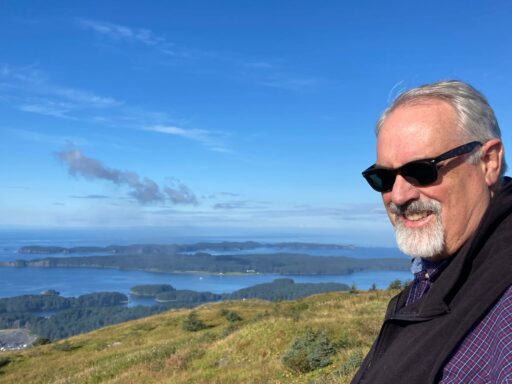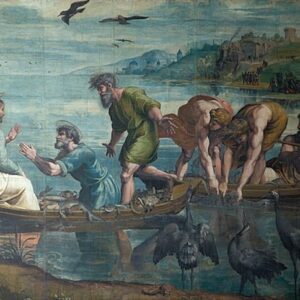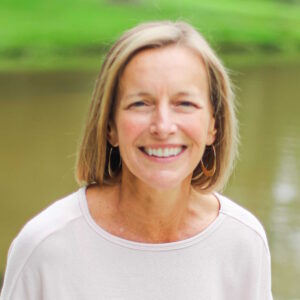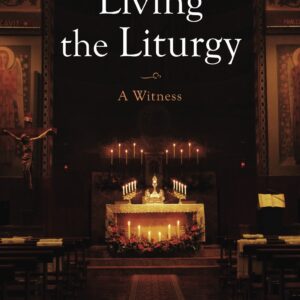We recently spoke with author Bret Lott about his new Slant book, Gather the Olives: On Food and Hope and the Holy Land
Let’s start with the origin of the book. How did you first find yourself in Israel and what were your first impressions?
This all started way back in 2003 when an old friend of mine from grad school, Michael Richards, who was then employed by the U.S. State Department, asked if I would be a part of a program led by the American Cultural Center to teach in a two-week program for teachers of English in Israel. I wasn’t able to go until 2005, finally, but when I landed at Ben-Gurion Airport in Tel-Aviv, I realized I was in a tremendously foreign place: I couldn’t even make out the shapes of letters on airport signs and billboards, the airport itself was decorated with ancient mosaics and limestone walls. And yet it was a very familiar place, the geography once we were out on the freeway (I never really thought of freeways in the Holy Land) very much like the southern California I grew up in. So the place was at once this wholly foreign experience and at the same time very familiar. I mean, here were orange groves out the car window as we drove away from the airport, and rolling hills, and all this signage that gave me no clue what was being advertised. A very strange feeling, disconcerting and comforting all at once.
Were you conscious from the beginning that food was going to be central to your experience of the peoples and cultures of the region?
Not exactly, but it didn’t take long. The first full piece in the book is about my first meal there, and the surprise of finding among the usual suspects of a hotel breakfast buffet—fresh fruit, baked goods, eggs—a plate full of shining and beautiful dates, and marinated eggplant, and a dozen different kinds of cheeses, and labneh and hummus and za’atar sprinkled on top. But accompanying that surprise was the fact of the waiter, an Arab Israeli, who right along with this surprise array of breakfast items also surprised me by teaching me just a little bit of Arabic—“please” and “thank you”—and thereby opening my world up at the same time this world of food was being opened to me. I remember thinking then and there that one day, who knew when, I would have to try and capture this twin revelation—the new world of food here and the notion of two languages at once—in words. As a writer, you’re always listening, watching, taking in. And this moment in a very foreign land struck me as brightly as any writing-worthy moment ever had.
You write of food that it can be an act of communion. How so? Did you witness how food might bring people from different backgrounds together?
I don’t want to give too much away, but there’s a moment in the piece titled “Security” when a number of cultures and religions—Israeli, Palestinian, Arab-American, straight-up American, Muslim, Jewish, Arab Christian and American Christian (!)—are all gathered around an impending meal, and there’s a moment of shared holiness despite the locale and the means by which we arrived at this venue. And despite the constant pall over them all because of the ever-present antagonisms among them. But in that moment we were all brought together in a beautiful and peace-filled moment, and I was blessed to have been a witness to that moment, and how food brings us together.
Is that how food might be seen as something that touches the sacred, as “sacramental”?
Absolutely. The Last Supper is a meal. And there was no more sacred or sacramental moment than that, other than Christ’s rising again. It’s why we keep it, observe it, treat it as the holy meal it is, and why we do this as a body of believers, all together.
Were there any experiences that really surprised you in your time in the Holy Land?
Yeah. Read the chapter “The World and Beit Shemesh” to see how very very very small the world really is. We were literally on the other side of the world, at a very small and particularly particular and yet mundane event in the middle of nowhere and, well, what happened happened. I don’t mean to be cryptic, but when this happened, I knew immediately.
Is there an anecdote that didn’t make it into the book that you’d like to share with us here?
Plenty. But maybe the one that I had hoped most to include but which didn’t make it in involved going to Doron Falafel there in German Colony the very first time, not knowing that later that fall we’d be moving into an apartment just down the street. The circumstances were as unique as one could get: My father had passed away while I was on the flight from the U.S. to Tel Aviv, and so I was only there overnight and would be flying all the way to Seattle the next morning, where he and my mother lived out on the Olympic Peninsula. I wrote extensively about this in the prior book of mine, Letters and Life, about the strangeness, the surreality of the whole thing, including sitting in Doron with Jackie and Derek and watching life carry on in the way people came to the window and ordered falafel, and shawarma, and salad, and fries, while here I sat with this news of my father’s death and being so very far from home. But because I’d already written about it in the prior book, nothing would work, no matter how hard I tried to fit it into the context of this book about food and living in Israel. What I finally realized was that what I’d written before about Doron—our favorite falafel and shawarma place, period—had sufficed. I could not write again about it from a different angle—food and place and people—because I’d already come to know it through writing of it in the context of my father’s passing away. I’d already encountered the place with my own words, and that context eclipsed anything further I could write about it.
You completed this book in the summer of 2023. Then the horrors of October 7 and after followed. You touch on this in your introductory note, “A Word.” Can you just say something here about what it means for you to have this book appear in the midst of such a highly charged, fraught moment in history? Why do you believe that hope still exists for this region?
I think the only way to look at the world is through the lens of hope. No matter what book I write, as a believer in Christ I can only see with hope, and with love, even and especially in the midst of the sin of the world. And sin is real, and horrible. But when everything happened as it did in October, there was in me the fear that this book would be immaterial, irrelevant, and unimportant precisely because it flies in the face of the horror we have all seen. The hope it offered, I felt, paled in the face of the horrors of sin. Yet I also realized that hope is the most radical act anyone can take. The book seemed at first to have been swallowed whole by the acts of the world, but the act of hope, I came to see, is as a fulsome answer to sin, the concrete antidote, as it were, to sin itself. Hope still exists, I saw, in the way the people I encountered and about whom I wrote interacted, and especially around food and gathering together, no matter their religion or nationality. Hope is written on our hearts, no matter who we are. This book, it is my hope, offers up the concrete act that hope really is.





